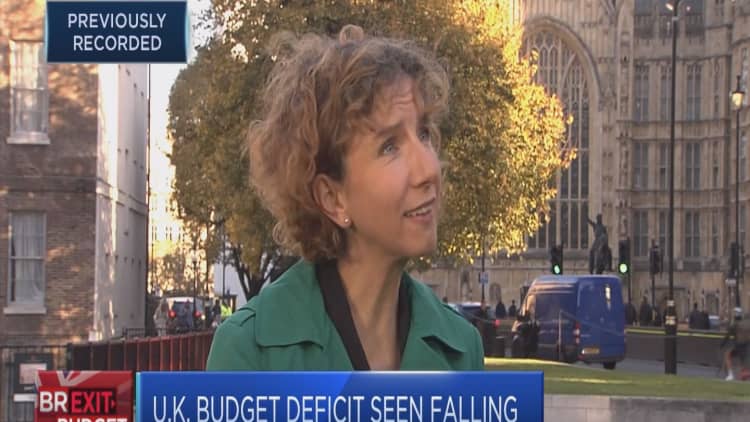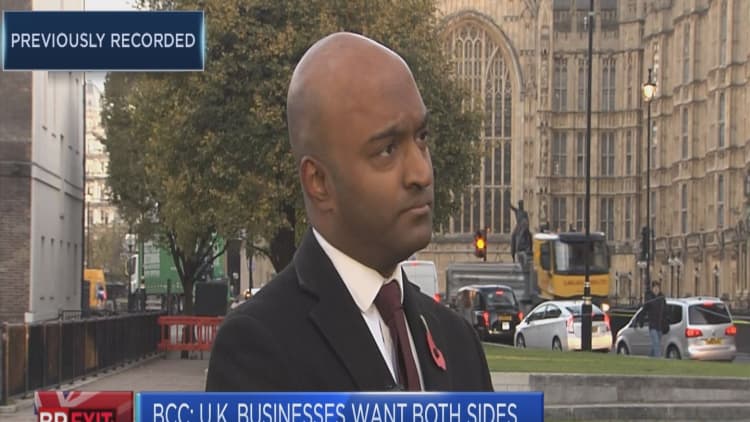The U.K. Finance Minister Philip Hammond is getting ready to present his latest parliament, hoping that fellow lawmakers will approve his plan to balance Britain's books.
The budget, to be presented at 3:30 p.m. London time on Monday, is the government's annual statement about what taxes it plans to impose as well as what it plans to spend public money on. It also provides an update on the state on the nation's finances.
As is typical in recent years, some of the announcements are pre-released to media and we already know some of the policies that Hammond will confirm. CNBC looks at what we already know ahead of the budget announcement and what to expect from Hammond on Monday afternoon.

Roads in England are set for a £30 billion ($38 billion) package. That money will be spent on a variety of road infrastructure needs, ranging from filling in potholes to building new major routes. The figure represents a 40 per cent increase in highways spending and is earmarked for 2020 to 2025.
The infrastructure bonanza has angered environmental campaigners, who judged a separate pre-declaration to spend £60m on tree planting as not enough to tackle carbon emissions.
There is to be a £2 billion commitment to mental health needs. The cash will come from a larger pot of money already announced by the U.K. government in June, leading to some criticism from opposition lawmakers that it is not really new funding.
At the beginning of October, Prime Minister Theresa May told her Conservative Party conference that the budget would also freeze the level of tax on fuel for the ninth year in a row. The freeze is essentially a cut when the forces of inflation are taken into consideration. There had been suggestions that the tax freeze might be lifted, raising government coffers by £12 billion each year.

Small business has rejoiced at another heavily trailed policy which is the promise of £650 million to spruce up high streets, as well as £900 million in business rates relief. The U.K. Treasury has claimed that small shops could chop a third off their annual bills. Around 500,000 businesses are estimated to benefit from the new policy.
There is also going to be a special 50 pence coin to mark Britain's departure from the European Union. The sharp-sided coin has attracted some scorn on the social media website, Twitter.
The UK's former Transport Minister Andrew Adonis jibed that, thanks to Brexit, the U.K. Treasury was certainly in need of minting lots of new coins.
https://twitter.com/Andrew_Adonis/status/1056854112162197504
U.K. Budget - What to watch
Budget watchers will want to know how the spending pledges will be financed and what taxes will therefore need to be tweaked.
There has been some speculation that the Conservative government could target people who describe themselves as self-employed but are considered by the government as actual full employees.
There will also be a keen eye kept on personal tax amounts. Should the amount of money a person can earn without tax be kept at the same level, this will in effect be a tax as inflation should be driving wagers higher.
Universal Credit is the U.K.'s government's contentious new scheme to wrap several working age benefits into one. It has received widespread criticism for leaving beneficiaries without income for six weeks and longer. Some expect Hammond to address the issue which has been hurting the government's claim that is it ending austerity.
Also possible is any policy that will attempt to address Britain's housing shortage. The government is currently producing a report on why house builders are not raising the numbers of properties being built, and those findings could inform any new announcement.


